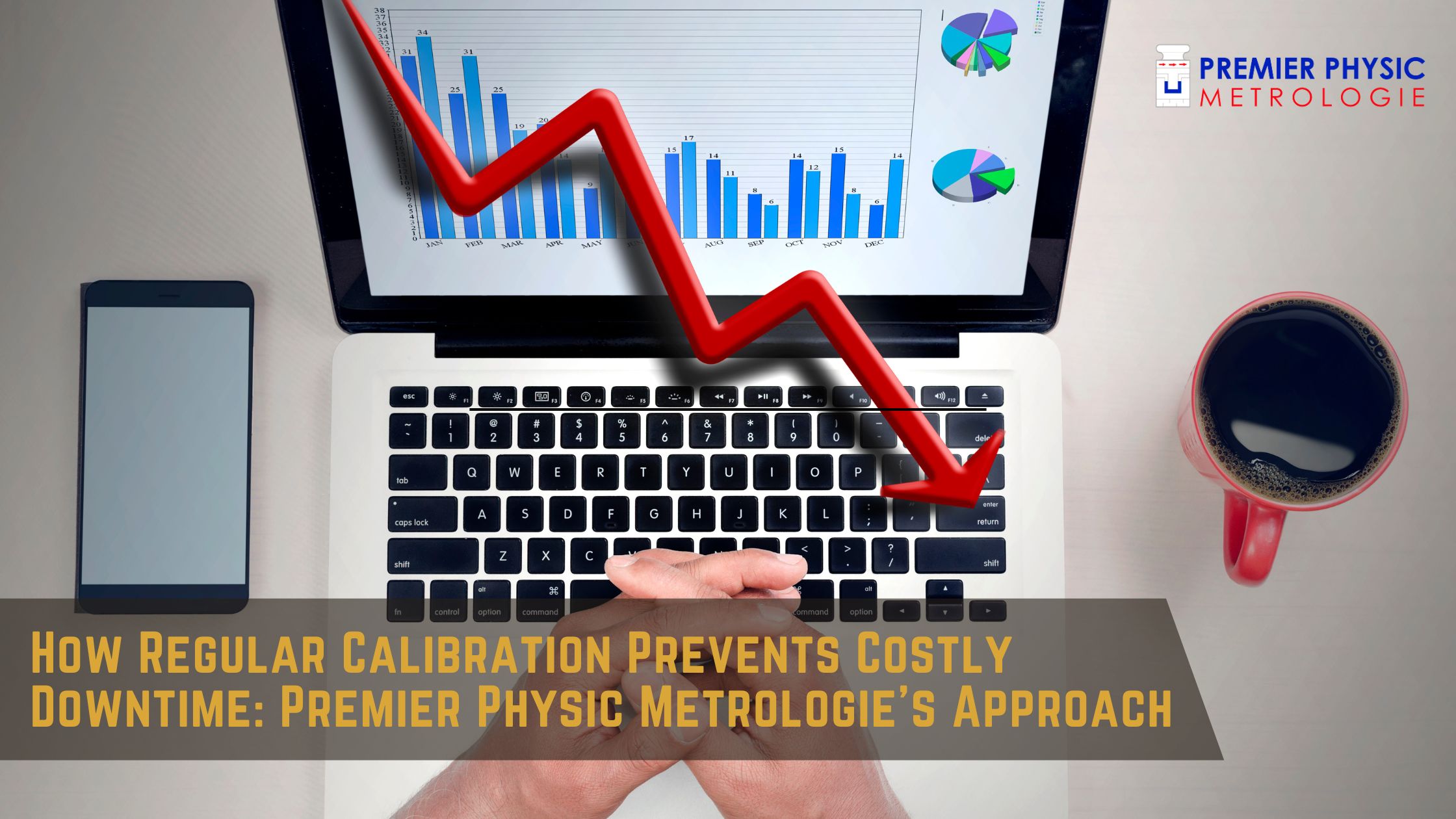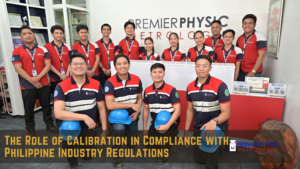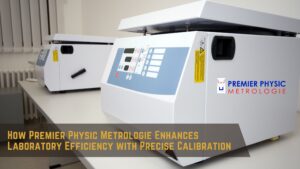1. Introduction to Calibration: What It Is and Why It Matters
Calibration is the process of comparing the measurements of an instrument or equipment against a recognized standard to ensure its accuracy and precision. Over time, all instruments—whether they are measuring temperature, pressure, or electrical signals—can drift from their original specifications due to factors like wear and tear, environmental changes, and frequent usage. Regular calibration ensures that equipment is performing as expected and provides reliable results.
For Filipino businesses, maintaining accurate and reliable equipment is crucial to operational efficiency. Whether you run a production line or oversee a healthcare facility, precision in measurements can mean the difference between smooth operations and unexpected breakdowns.
Premier Physic Metrologie specializes in providing expert calibration services to a variety of industries in the Philippines, ensuring that instruments remain in top condition. Through regular calibration, businesses can reduce the risk of errors, maintain compliance with industry standards, and prevent costly downtime.
2. The Hidden Costs of Downtime
Downtime refers to periods when equipment or processes are not operational due to malfunctions, repairs, or maintenance issues. In many cases, downtime is not planned, resulting in unexpected interruptions that can severely impact a company’s operations and finances. Here are some of the hidden costs of downtime:
- Lost Production: Every minute that a production line or machine is down can lead to a loss in output, which ultimately reduces revenue.
- Labor Costs: Even when equipment is idle, labor costs continue to accrue as workers remain on standby.
- Repair and Replacement Costs: Uncalibrated equipment that malfunctions may require costly repairs or replacements.
- Missed Deadlines: Downtime can delay deliveries and lead to missed deadlines, damaging customer relationships.
- Safety Risks: Equipment that is not regularly calibrated may pose safety risks to employees, especially in industries like healthcare and manufacturing.
These hidden costs can accumulate rapidly, making downtime a major concern for any business. Regular calibration helps mitigate these risks by ensuring equipment is functioning correctly and minimizing the chances of unplanned downtime.
3. How Regular Calibration Prevents Downtime
Identifying Potential Failures Early
One of the key benefits of regular calibration is the ability to identify potential issues before they escalate into major problems. Equipment that is not calibrated regularly may develop inaccuracies, leading to inefficiencies and ultimately resulting in breakdowns. Through calibration, small deviations can be corrected before they cause significant disruptions.
For example, a temperature sensor that is used to control an industrial oven may become less sensitive over time, leading to incorrect temperature readings. If not addressed, this could cause the oven to operate at unsafe levels, resulting in equipment failure or product defects. By calibrating the sensor regularly, potential problems can be identified and resolved before they lead to costly downtime.
Ensuring Compliance with Industry Standards
Many industries in the Philippines, such as healthcare, food processing, and manufacturing, are subject to strict regulatory standards that require accurate and reliable measurements. Failing to comply with these standards can result in penalties, product recalls, or even the suspension of operations.
Regular calibration ensures that equipment continues to meet these regulatory requirements. By maintaining compliance, businesses can avoid shutdowns and continue operating smoothly.
Optimizing Equipment Performance
Calibrated equipment performs at its best, providing consistent, reliable results. By ensuring that all instruments are working at peak efficiency, businesses can maximize their productivity and minimize the risk of downtime due to malfunctioning or inefficient equipment. In addition, well-calibrated machines require less energy to operate, contributing to reduced operational costs.
4. Premier Physic Metrologie’s Approach to Calibration
Calibration Methods and Techniques
Premier Physic Metrologie employs a range of calibration methods depending on the type of instrument being tested. This includes electrical, temperature, pressure, humidity, and mechanical calibration. Each calibration process involves rigorous testing, adjustments, and documentation to ensure that instruments are returned to optimal accuracy.
The company utilizes state-of-the-art calibration equipment and techniques to provide the highest level of precision and accuracy. By leveraging cutting-edge technology, Premier Physic Metrologie ensures that every calibration is performed to the highest standards.
Expertise in Various Industries
With over two decades of experience, Premier Physic Metrologie has established itself as a trusted calibration partner across multiple industries. Whether it’s manufacturing, healthcare, food processing, or pharmaceuticals, the company has the expertise to handle complex calibration requirements.
Premier Physic Metrologie’s skilled technicians are trained to handle a wide variety of instruments, ensuring that each calibration is tailored to the specific needs of the industry. This level of expertise allows businesses to confidently rely on the company’s services, knowing that their equipment is in expert hands.
ISO/IEC 17025 Accreditation and Its Importance
One of the standout features of Premier Physic Metrologie is its ISO/IEC 17025 accreditation, the international standard for laboratory competence. This accreditation signifies that the company meets the highest global standards for accuracy, consistency, and technical expertise.
For businesses that need to comply with strict regulatory requirements, partnering with an ISO/IEC 17025 accredited calibration service provider ensures that all calibration processes meet the required levels of precision and reliability. This not only helps businesses avoid compliance issues but also provides peace of mind that their equipment is performing at its best.
5. Economic Benefits of Regular Calibration
Reduced Repair Costs
Uncalibrated equipment can malfunction, leading to unexpected repairs that may be costly and time-consuming. Regular calibration helps identify and address potential issues before they result in equipment failure, reducing the need for expensive repairs.
By proactively maintaining equipment through regular calibration, businesses can avoid the high costs associated with emergency repairs and unscheduled downtime.
Improved Productivity
Calibrated equipment operates at peak efficiency, enabling businesses to maximize their productivity. When instruments provide accurate readings and machines run smoothly, workflows are uninterrupted, and production levels remain high. This leads to higher output, which translates into increased revenue.
Enhanced Equipment Lifespan
Regular calibration extends the lifespan of equipment by ensuring that it operates within its designated parameters. When equipment is calibrated regularly, wear and tear are minimized, and the risk of premature failure is reduced. This helps businesses get the most out of their investments, avoiding the need for early equipment replacements.
6. Calibration in Key Industries
Manufacturing
In manufacturing, precision is critical to ensuring product quality and meeting production targets. Calibration plays a vital role in maintaining the accuracy of machinery and instruments, from CNC machines to quality control equipment. Regular calibration helps manufacturers avoid production delays, reduce waste, and ensure that products meet quality standards.
Healthcare
Healthcare facilities rely on accurate measurements for diagnostics, treatment, and patient care. Equipment such as blood pressure monitors, thermometers, and medical imaging devices must be calibrated regularly to ensure patient safety and regulatory compliance. Inaccurate readings can lead to misdiagnosis or improper treatment, making calibration essential in the healthcare industry.
Food and Beverage
In the food and beverage industry, temperature control is crucial to maintaining food safety and quality. Calibration of thermometers, refrigeration units, and processing equipment ensures that products are stored and prepared at the correct temperatures. This helps prevent spoilage, contamination, and regulatory violations.
Electronics and Semiconductors
The electronics and semiconductor industries require precise measurements for manufacturing components that meet exacting specifications. Calibration ensures that testing and production equipment deliver accurate readings, minimizing the risk of defects and ensuring product reliability
7. Challenges in Maintaining Calibration Schedules
Maintaining a regular calibration schedule can be challenging for businesses, especially those with large amounts of equipment or complex processes. Factors such as scheduling conflicts, limited resources, and lack of awareness can make it difficult to stay on top of calibration needs.
8. Premier Physic Metrologie’s Solutions for Streamlining Calibration
Scheduled Maintenance Plans
Premier Physic Metrologie offers customized maintenance plans to help businesses stay on track with their calibration schedules. These plans are tailored to the specific needs of each client, ensuring that calibration is performed at regular intervals without disrupting operations.
On-Site Calibration Services
For businesses that cannot afford to send equipment off-site for calibration, Premier Physic Metrologie provides on-site calibration services. This minimizes downtime and ensures that equipment is back in operation as quickly as possible.
Data Management and Reporting
Premier Physic Metrologie offers advanced data management and reporting tools to help businesses keep track of their calibration history. This makes it easy to stay compliant with regulatory requirements and monitor the performance of equipment over time.
9. Conclusion: The Importance of Partnering with a Trusted Calibration Service Provider
Regular calibration is a vital component of maintaining operational efficiency, preventing costly downtime, and ensuring the accuracy of equipment. By partnering with a trusted calibration service provider like Premier Physic Metrologie, businesses in the Philippines can protect their investments, optimize their workflows, and maintain compliance with industry standards.
With over 24 years of experience and a commitment to excellence, Premier Physic Metrologie stands out as a leader in the calibration industry. Through its expert services, businesses can rest assured that their equipment is in good hands, allowing them to focus on what matters most: running a successful operation.




